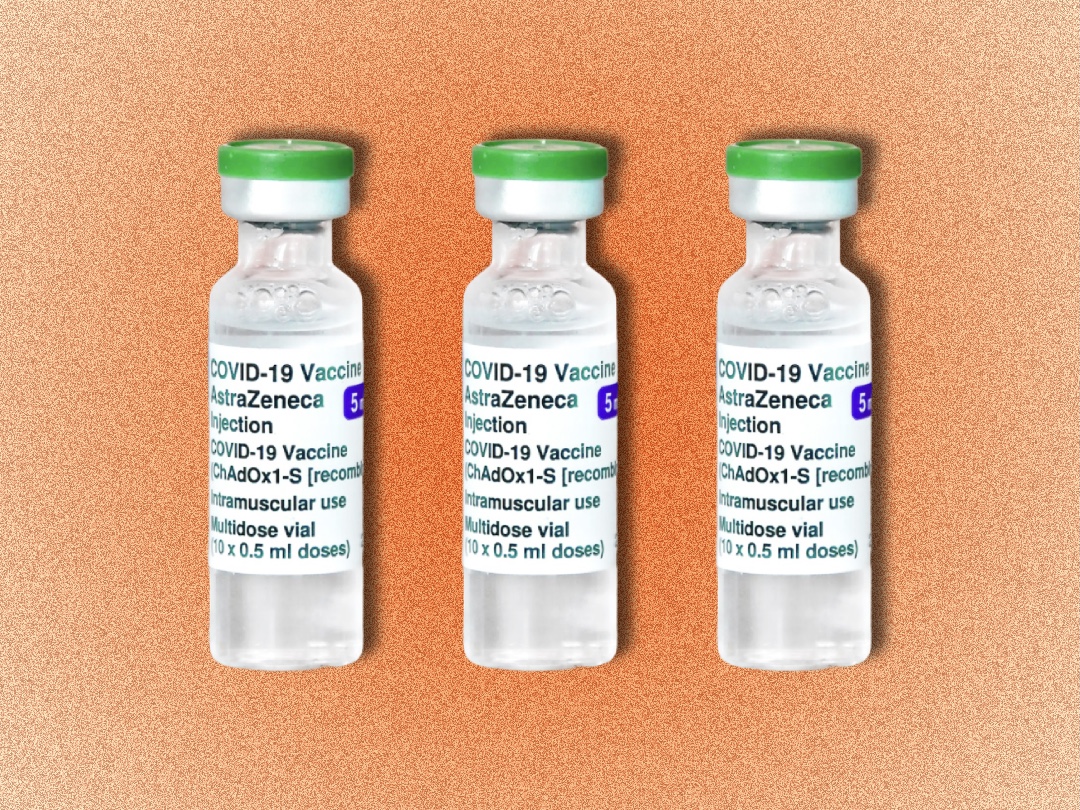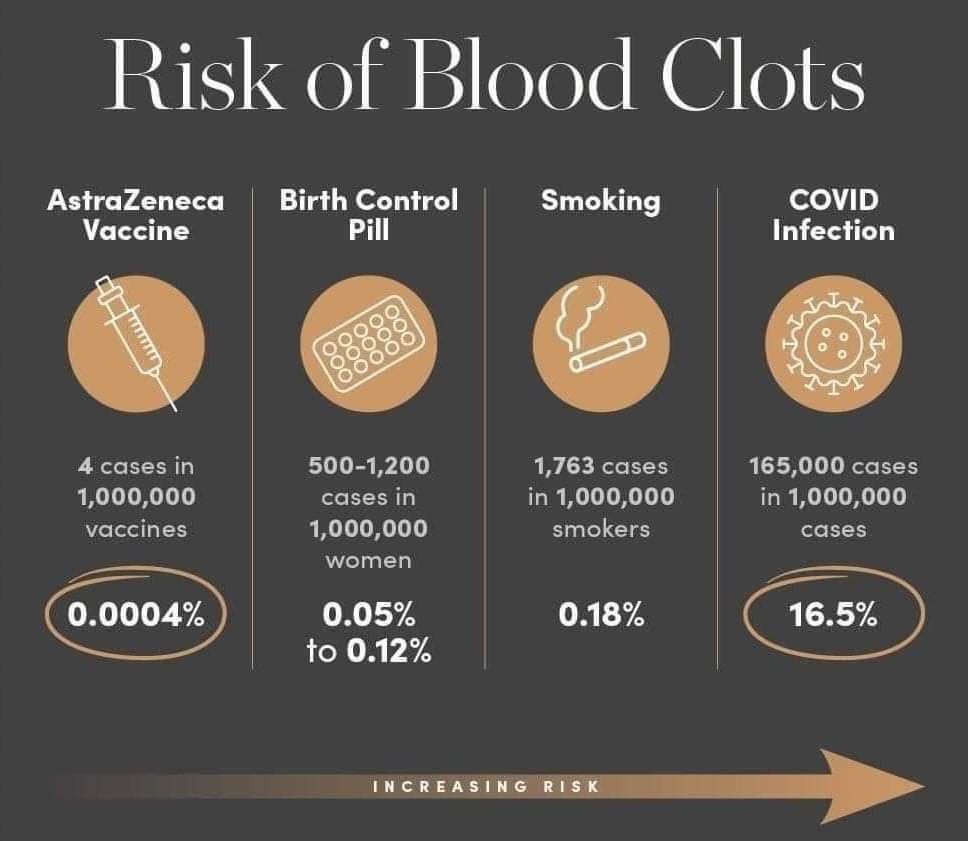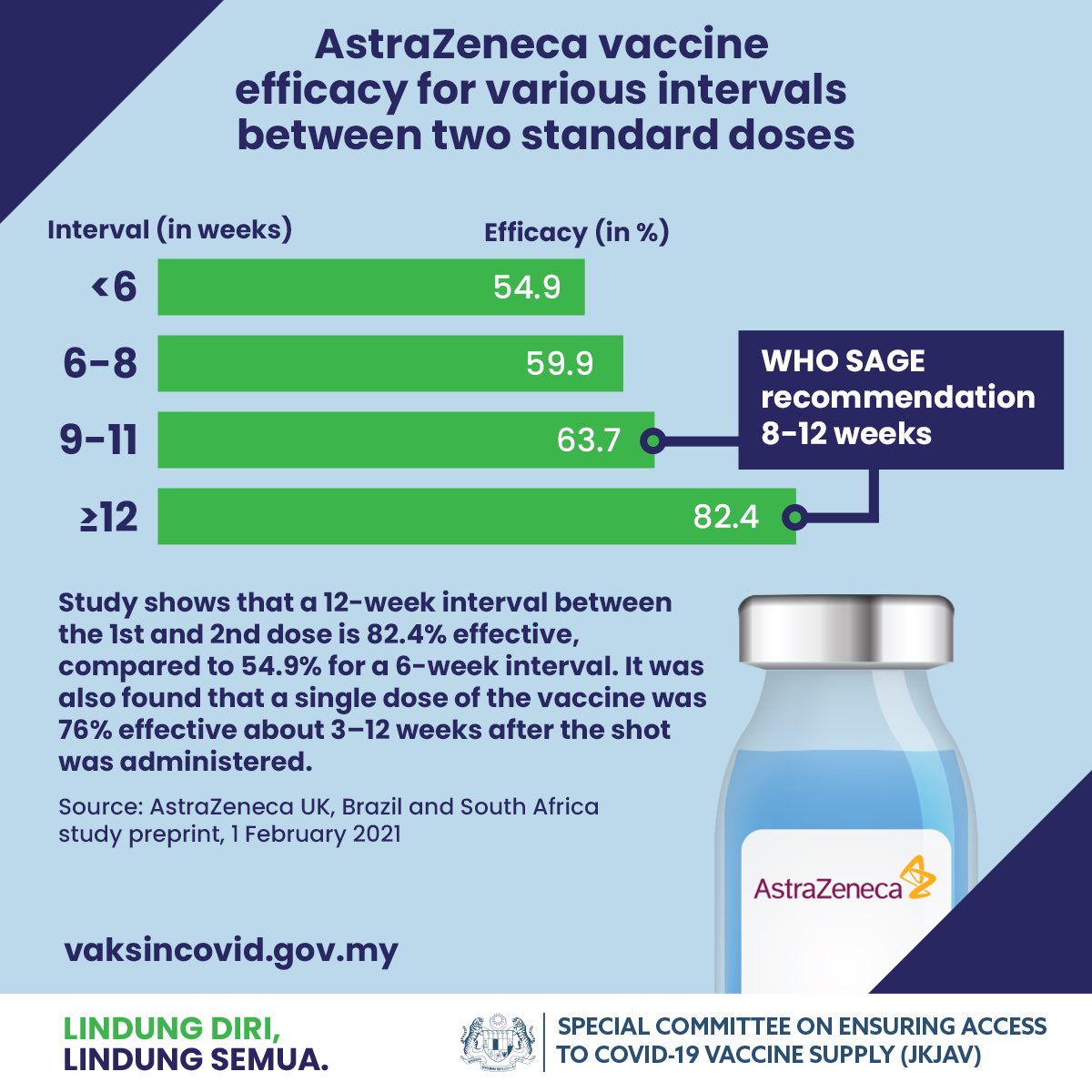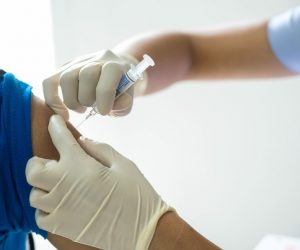
Concerns over the side effects (such as blood clot) continue to mount among Kuala Lumpur and Selangor residents who have booked their AstraZeneca COVID-19 vaccine slots.
The key to getting back to normal is for majority of the population to be vaccinated and achieve herd immunity. While the first voluntary opt-in programme has closed, the next round is expected to roll out as soon as more vaccines reach our shores. Malaysia has procured 12.8 million doses of the AstraZeneca vaccine, with the next shipment of 1.1 million of which arriving within this month. So, for those who are still sitting on the fence, here are few things to know:
Is the AstraZeneca vaccine safe?
Yes, it is very safe. The Oxford/AstraZeneca vaccine was approved for use after being thoroughly tested on tens of thousands of people. On top of that, over 21 million people have now had this vaccine in the UK, the overwhelming majority without any serious side effects or reactions.
The World Health Organization, the medicines regulator in Europe, and the UK’s own medicines regulator have continued to monitor the safety of the vaccine. They have all said that the Oxford/AstraZeneca vaccine (also known as Vaxzevria) is safe and emphasised that the benefits continue to outweigh the risks.
It’s important that people to understand that each vaccine will have the same end result: preparing the body to create an immune response to the SARS-CoV-2 spike protein. While Pfizer and Moderna vaccines use mRNA technology have a higher efficacy than the AstraZeneca vaccine, which uses viral vector technology, they all target the same protein.
The most recent data from Korea Disease Control and Prevention Agency (KDCA) showed that Pfizer vaccine, jointly developed by BioNTech, was 89.7% effective in preventing infection at least two weeks after a first dose was given, while the AstraZeneca shot was 86.0% effective.
What side effects does the AstraZeneca vaccine have?
Like all medicines, vaccines can cause side effects. Many people don’t get any side effects. For the Oxford/AstraZeneca vaccine (like the other vaccines), the vast majority of side effects that occur are mild and short-term.
The most common side effects are discomfort at the injection site, or feeling generally unwell, tired, or feverish, or a headache, feeling sick or having joint or muscle pain. You can take paracetamol to treat any of these side effects.
Often side effects are a sign that the vaccine is doing its job: it can happen with many vaccines that some people might feel slightly unwell because their immune system is responding to the protein, but this is not a COVID-19 illness and the vaccine can’t give you coronavirus.
Does the AstraZeneca vaccine cause blood clots?
To better understand, experts are looking to the UK, which has had the shot in circulation since January. Up to 21 April, there were 209 reports of people developing rare blood clots which were linked to low platelet levels after receiving a first dose of the Oxford/ AstraZeneca vaccine in the UK.
Blood clots after the vaccine are rare. These 209 cases of blood clots are after 22 million doses of the vaccine. Of the 209 people who developed blood clots, 41 died. The report has said that while there is stronger evidence of a link between the vaccine and the blood clots, more research is needed. They have emphasised that any risks of the Oxford/ AstraZeneca vaccine continue to outweigh the risks for the vast majority of people.
All the cases of blood clots were accompanied by abnormally low levels of platelets in the blood. Platelets are involved in blood clotting, and these abnormally low levels can be a sign that your body’s normal clotting mechanisms are not working properly. Some of the blood clots were an unusual type of blood clot in blood vessels that drain blood from the brain called a cerebral venous sinus thrombosis (CVST).
It is possible that an unusual immune reaction triggered by the vaccine could cause this to happen in rare cases and scientists are studying this further. The European Medicines Agency has now listed this as a rare possible side effect of the vaccine. An early study by the University of Oxford suggests that getting COVID-19 can put you at a much greater risk of developing CVT, than what having any of the vaccines would.
What is the chance of dying from blood clots after having the vaccine?
Even if the Oxford/AstraZeneca vaccine is proven to be the cause of the clots, the rate of death is extremely low – about one in every 530,000 people vaccinated. This needs to be balanced with the known risks of coronavirus causing serious illness (with complications that can include blood clots) and death. The risks of not having the vaccine are much greater than any risks of having it, for you as well as for those around you.
What are the signs of a blood clot? When should I seek help?
Seek immediate medical help and treatment if you experience any of the following symptoms after a few days, and up until four weeks after having the vaccine:
- A severe headache that isn’t getting better, even after painkillers
- A headache that feels worse when you bend over or lie down
- A headache that isn’t normal for you, that occurs with blurred vision, nausea, vomiting, difficulty with your speech, weakness, drowsiness or seizures.
- A rash on your skin that looks like small bruises or blood under the skin
- Chest pain, shortness of breath, leg swelling or stomach pain
If I had AstraZeneca for my first dose, will I have it again for my second dose?
Yes – if you had the Oxford/AstraZeneca vaccine for your first dose, you will be offered it again for your second dose. This is because we still don’t know how effective different vaccines are when they are mixed together. Side effects from the second dose could be increased if you have a second dose of a different vaccine.
How long does it take the vaccine to work?
It takes 3 weeks, after getting the first dose, for the vaccine to work. You will have the best protection from COVID-19 after the second dose, which you should get at least 12 weeks after your first dose. There is a chance you might still get Covid-19, even if you have the vaccine.
What to expect at your COVID-19 vaccination appointment
Conclusion
All in all, trust in the vaccine — if you’re given the chance to take the vaccine early, do it and remember you’re helping many vulnerable people in the community if you are. We all want to get through the pandemic as quickly as possible. And that means all of us getting vaccinated as quickly as possible. Don’t forget: the best vaccine is the vaccine that is available.
Disclaimer: We are not professional medical researchers nor are we doctors. These are our own findings through reliable professional medical sites. If you need more information regarding COVID-19 vaccines in Malaysia, click here.

















